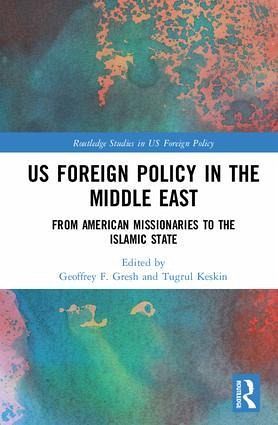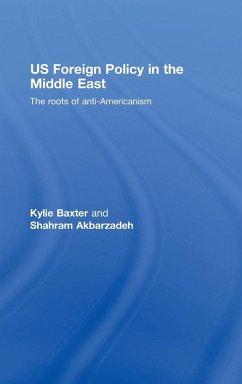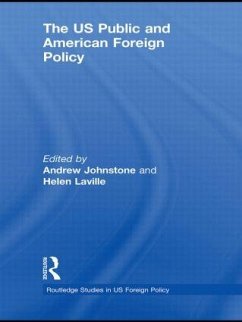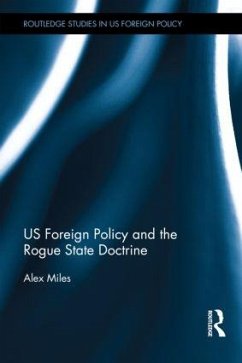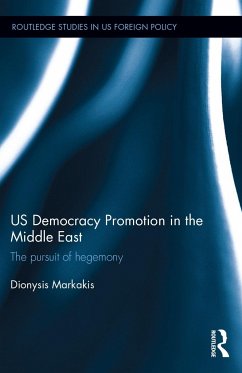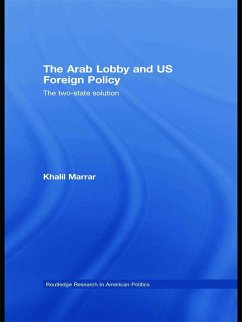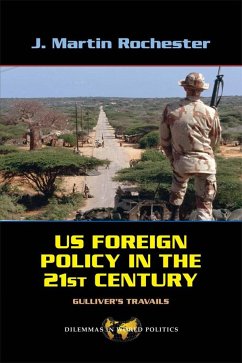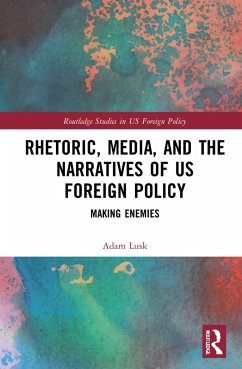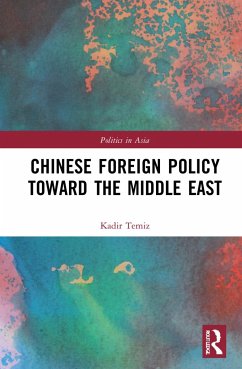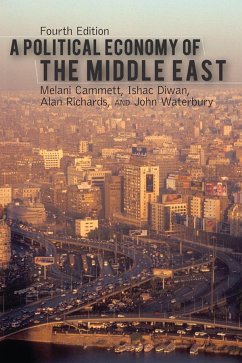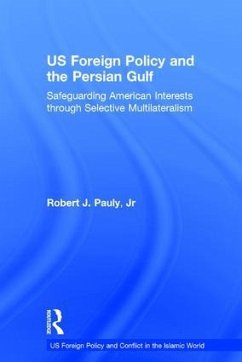Gebundenes Buch
US Foreign Policy in the Middle East
From American Missionaries to the Islamic State
Herausgeber: Gresh, Geoffrey F.; Keskin, Tugrul
Versandkostenfrei!
Versandfertig in 1-2 Wochen
Weitere Ausgaben:

PAYBACK Punkte
75 °P sammeln!




This book examines the emergence, development, and transformation of U.S. foreign policy toward the Middle East from the early 1900s to the present day. With contributions from some of the world's leading scholars, it takes a fresh, interdisciplinary, and insightful look into the many antecedents that led to the current U.S. foreign policy.
Geoffrey F. Gresh is Department Chair and Associate Professor of International Security Studies at the College of International Security Affairs, National Defense University in Washington, D.C. He is also the former Director of the South and Central Asia Security Studies Program at NDU. Previously, he served as a Visiting Fellow at Sciences Po in Paris and was the recipient of a Dwight D. Eisenhower/Clifford Roberts Fellowship. He also received a US Fulbright-Hays Grant to teach international relations at Salahaddin University in Erbil, Iraq. He has been awarded a Rotary Ambassadorial Scholarship to Istanbul, Turkey and a Presidential Scholarship at the American University in Cairo, Egypt. Additionally, he has worked with Colombian refugees in Quito, Ecuador. Most recently, he was named as a US-Japan Foundation Leadership Fellow, an Associate Member of the Corbett Centre for Maritime Policy Studies at King's College in London, and as a term member to the Council on Foreign Relations. He is the author of Gulf Security and the US Military: Regime Survival and the Politics of Basing (Stanford University Press, 2015) and editor of Eurasia's Maritime Rise and Global Security: From the Indian Ocean to Pacific Asia and the Arctic (Palgrave, 2018). His research has also appeared in such scholarly or peer reviewed publications as Gulf Affairs, World Affairs Journal, Sociology of Islam, Caucasian Review of International Affairs, Iran and the Caucasus, The Fletcher Forum of World Affairs, Turkish Policy Quarterly, Central Asia and the Caucasus, Insight Turkey, Al-Nakhlah, War on the Rocks, and Foreign Policy. He received a Ph.D. in International Relations and MALD from The Fletcher School of Law and Diplomacy at Tufts University. He can be followed on Twitter @ggresh. Tugrul Keskin is an Associate Professor and member of the Center for Turkish Studies and Center for Global Studies at Shanghai University. Keskin was the graduate director at the Department of Political Science and International Relations at Maltepe University in Turkey. He taught previously at the Department of International and Global Studies and as an affiliated faculty of Black Studies, Sociology and the Center for Turkish Studies at Portland State University. He served as the Middle East Studies Coordinator at PSU for six years. His research and teaching interests include International and Global Studies, Social and Political Theory, African Society and Politics, Sociology of Human Rights, Islamic Movements, and Sociology of Middle East. Previously, Dr. Keskin taught as an instructor of Sociology and Africana Studies at Virginia Tech University and taught as a Visiting Assistant Professor of Sociology at James Madison and Radford Universities. He received his PhD in Sociology from Virginia Tech, with graduate certificate degrees in Africana Studies, Social and Political Thought, and International Research and Development. He is the founder and moderator of the Sociology of Islam mailing list, and the founder and editor of the Sociology of Islam Journal-BRILL and region editor of Critical Sociology-SAGE (Middle East and North Africa). His current research involves Modern Uyghur Nationalism, China and the Middle East, and US Foreign Policy and Think-Tanks in the Post-Cold War Era.
Produktdetails
- Verlag: Routledge
- Seitenzahl: 328
- Erscheinungstermin: 13. April 2018
- Englisch
- Abmessung: 240mm x 161mm x 22mm
- Gewicht: 658g
- ISBN-13: 9780815347149
- ISBN-10: 0815347146
- Artikelnr.: 52458367
Herstellerkennzeichnung
Libri GmbH
Europaallee 1
36244 Bad Hersfeld
gpsr@libri.de
Für dieses Produkt wurde noch keine Bewertung abgegeben. Wir würden uns sehr freuen, wenn du die erste Bewertung schreibst!
Eine Bewertung schreiben
Eine Bewertung schreiben
Andere Kunden interessierten sich für




